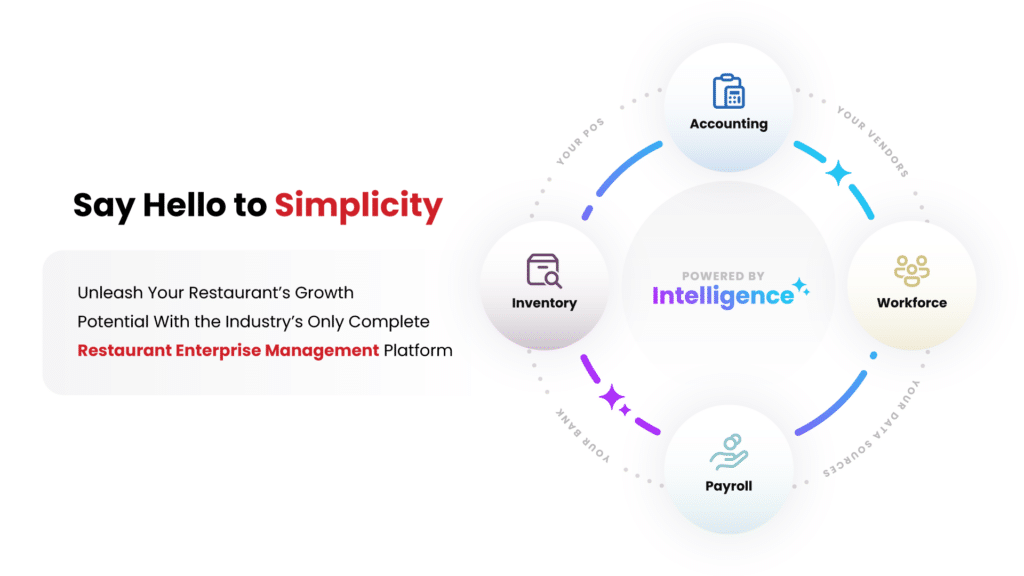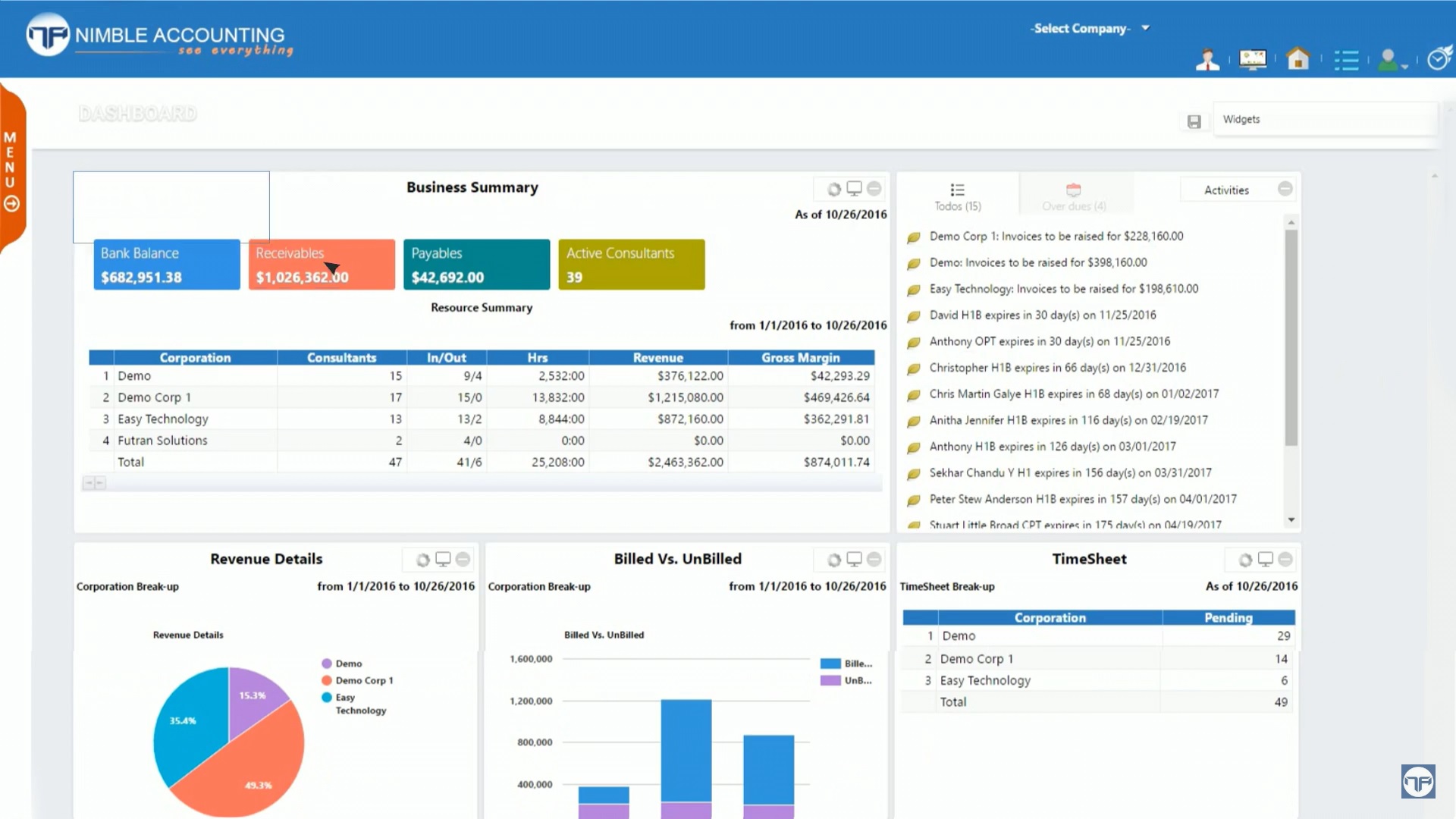Finding the best accounting software for your hospitality business can feel overwhelming. You need a tool that’s easy to use, saves you time, and keeps your finances organized.
Imagine having a system that handles everything—from tracking expenses to managing payroll—without adding to your workload. You’ll discover the top options designed specifically for the hospitality industry. These solutions will help you focus more on your guests and less on complicated numbers.
Keep reading to find the perfect fit for your business and take control of your financial success.

Credit: www.restaurant365.com
Criteria For Choosing Software
Choosing the right accounting software for the hospitality industry needs careful thought. The software must meet specific business needs and handle daily tasks smoothly. It should help manage finances, track expenses, and support business growth.
Several factors matter when selecting software. These include features, ease of use, integration options, pricing, and the ability to grow with your business. Understanding these criteria helps you pick the best fit.
Key Features For Hospitality
Look for software with tools made for hotels, restaurants, and cafes. Important features include payroll management, inventory tracking, and sales reporting. The software should also handle taxes and support multiple payment methods.
Real-time data and mobile access help manage accounts on the go. The ability to generate detailed financial reports helps with quick decisions. Features for customer billing and supplier payments are also essential.
Ease Of Use And Integration
Choose software with a simple, clear interface. Staff should use it without much training. Easy navigation saves time and reduces errors.
The software must connect well with other tools. Integration with POS systems, booking platforms, and payroll software is crucial. This connection reduces manual work and keeps data consistent across systems.
Pricing And Scalability
Pricing should fit your budget and business size. Look for clear costs with no hidden fees. Some software offers monthly or yearly plans.
Scalability means the software grows with your business. It should handle more users, more transactions, and new locations easily. Flexible plans help avoid switching software later.
Top Accounting Software Picks
Choosing the right accounting software is important for hospitality businesses. It helps manage money, track expenses, and simplify taxes. Different types of businesses need different tools. Small hotels, restaurants, and large chains all face unique challenges.
The following picks suit each type. They focus on ease of use, features, and cost. These choices help keep finances clear and organized.
Best For Small Hotels
Small hotels need simple software with strong booking and billing features. It should connect with reservation systems easily. QuickBooks Online fits well here. It offers easy invoicing and expense tracking. The interface is clear and user-friendly. Small hotel owners can manage accounts without much training.
Best For Restaurants
Restaurants need software that handles daily sales and inventory. It must track food costs and payroll accurately. Xero stands out for restaurants. It integrates with point-of-sale systems and tracks expenses in real time. The software helps control costs and improve profit margins.
Best For Large Hospitality Chains
Large chains require powerful software with advanced reporting and multi-location support. NetSuite ERP offers these features. It manages complex finances and consolidates data from many sites. The system supports budgeting, forecasting, and compliance. This helps big hospitality firms stay organized and efficient.
Cloud-based Vs On-premise Solutions
Choosing the right accounting software is important for the hospitality industry. Businesses often debate between cloud-based and on-premise solutions. Both have clear benefits. Understanding these options helps make a better decision.
Benefits Of Cloud Accounting
Cloud accounting stores data online. This allows access from any device with internet. Hospitality businesses can check accounts anytime, anywhere. Updates happen automatically without extra effort. Cloud systems offer strong data backup and security. They reduce the need for IT staff and hardware. Many cloud options scale easily as the business grows. This flexibility suits busy hotels and restaurants. Costs often come as monthly fees, avoiding large upfront payments.
Advantages Of On-premise Software
On-premise software installs directly on local computers. It gives businesses full control over their data. Some prefer this for privacy reasons. Systems work without internet, ensuring constant access. Customization options can fit specific hospitality needs. On-premise solutions may have lower long-term costs. They avoid ongoing subscription fees. Staff may feel more confident using familiar desktop software. This option suits businesses with strong IT support and strict data rules.
Automation And Reporting Tools
Automation and reporting tools simplify accounting tasks in the hospitality industry. They save time and reduce errors by handling routine jobs automatically. These tools help managers focus on business growth and guest satisfaction. Clear, accurate reports provide insights into financial health. This section explains key features that improve accounting efficiency.
Expense Tracking Automation
Expense tracking automation records costs without manual entry. It captures bills, receipts, and invoices digitally. This reduces mistakes and speeds up bookkeeping. The software categorizes expenses by department or project. Managers see real-time spending data on dashboards. Alerts notify if budgets exceed limits. This helps control costs and avoid overspending. Automation frees staff from tedious data input tasks.
Financial Reporting And Analytics
Financial reporting tools generate clear statements quickly. They create profit and loss reports, balance sheets, and cash flow summaries. Analytics highlight trends and unusual transactions. This helps spot problems early and make informed decisions. Custom reports tailor data for specific needs or periods. Visual charts make numbers easy to understand. Accurate reports build trust with investors and regulators. These tools improve transparency and financial planning.
Security And Compliance Features
Security and compliance are vital for accounting software in the hospitality industry. This sector handles sensitive financial and personal data daily. Protecting this data from breaches is a top priority. Also, the software must follow strict industry rules. These features help businesses avoid fines and build trust with clients.
Data Protection Measures
Good accounting software uses strong encryption to secure data. It protects information during storage and transfer. Access controls limit who can see or change data. Regular backups ensure data is safe even if a system fails. Software often includes audit trails to track changes and detect issues quickly.
Industry Regulations Compliance
Hospitality businesses must follow many laws about financial data. The software supports compliance with tax laws and financial reporting standards. It often includes features for VAT, GST, or other tax calculations. Compliance with data privacy laws like GDPR is also crucial. These tools help avoid legal problems and keep records accurate.

Credit: hiasoftware.com
User Reviews And Ratings
User reviews and ratings provide real insights into accounting software for the hospitality industry. They reveal how well a tool works in daily operations and what users think about it. Reviews help businesses find software that fits their needs and avoids common problems.
Feedback from users shows both strengths and weaknesses. It covers ease of use, customer support, and software features. Ratings help compare options quickly and make better decisions.
Customer Satisfaction Insights
Many users praise software that simplifies bookkeeping and saves time. They like clear reports and fast invoice management. Good customer service also earns high marks. Quick responses and helpful support improve satisfaction.
Some users find mobile access very useful. It allows managing accounts from anywhere. Customizable features get positive comments too. These help tailor the software to specific hospitality needs.
Common User Challenges
Some users report difficulties with initial setup. Complex installation can slow down use. Others mention occasional glitches or slow updates. These issues can disrupt daily tasks.
Training new staff on the software can be tough. Some find the interface not very intuitive. Limited integrations with other tools cause frustration. Users want smoother connections to reservation and payroll systems.
Future Trends In Hospitality Accounting
The hospitality industry faces constant change in how it manages finances. New tools help businesses save time and reduce errors. Accounting software is evolving with new technology. This change helps hotels, restaurants, and other businesses stay organized and efficient.
Future trends focus on using smart technology and making accounting easy on mobile devices. These trends improve accuracy and give quick access to important data. Let’s explore two key trends shaping hospitality accounting.
Ai And Machine Learning Integration
Artificial intelligence (AI) helps automate many accounting tasks. It can sort expenses, track payments, and spot mistakes fast. Machine learning improves over time by learning from data. This means fewer errors and faster reports.
AI also helps predict future costs and revenues. This assists managers in making better decisions. It reduces manual work and frees up staff for other tasks. Hospitality businesses using AI save money and time.
Mobile Accounting Solutions
Mobile accounting lets staff manage finances anywhere. They can check reports, approve invoices, and record expenses on the go. This flexibility speeds up processes and keeps information up to date.
Mobile apps are easy to use and connect with other business tools. They give real-time access to financial data. This helps managers react quickly to changes and improve cash flow. Mobile solutions make accounting simpler and faster for busy hospitality teams.

Credit: nimbleproperty.net
Frequently Asked Questions
What Features Should Hospitality Accounting Software Have?
Hospitality accounting software should include inventory tracking, payroll management, and real-time financial reporting. It must support multi-location operations and integrate with POS systems. These features help streamline financial tasks specific to hotels, restaurants, and other hospitality businesses.
How Does Accounting Software Benefit The Hospitality Industry?
Accounting software simplifies financial management by automating tasks like invoicing and expense tracking. It improves accuracy, reduces errors, and saves time. This allows hospitality businesses to focus on customer service and operational efficiency, enhancing overall profitability.
Can Hospitality Accounting Software Integrate With Pos Systems?
Yes, most hospitality accounting software offers seamless integration with POS systems. This integration ensures accurate sales data, real-time inventory updates, and streamlined financial reconciliation. It reduces manual entry and helps maintain consistent records across platforms.
Is Cloud-based Accounting Software Suitable For Hospitality Businesses?
Cloud-based software is ideal for hospitality as it offers remote access, real-time updates, and automatic backups. It supports multi-location management and enhances collaboration among staff. Plus, it reduces IT costs and scales easily with business growth.
Conclusion
Choosing the right accounting software makes a big difference. It saves time and reduces errors. Hospitality businesses can track expenses and income easily. Clear reports help owners make smart decisions. Affordable and user-friendly options fit different needs. Test a few to see what works best.
Good software supports growth and smooth operations. Keep your finances organized to focus on guests. The right tool helps your business succeed every day.
